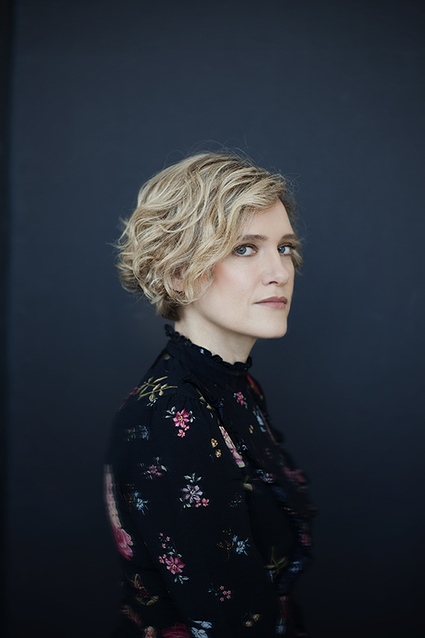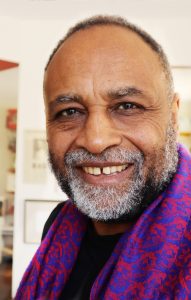Véloser, veloyer, véloter
Romy est linguiste du haut de ses quatre ans et demi. On est dans la voiture, il y a une semaine, elle observe calmement une fillette à vélo et dit : « Alors, elle est en train de véloser. » Elle emploie par la suite dans le même sens le verbe veloyer.
Aujourd’hui, comme il fait soleil, le plus sérieux du monde elle décrète : « Allons véloter, papa. »
En l’espace d’une semaine, Romy a enrichi le dictionnaire de la langue française de trois verbes d’action : véloser, veloyer et véloter.
Alors quoi faire ? Moi, je suis écrivain et éditeur de la maison d’édition Mémoire d’encrier dont la mission est la diversité. Dois-je lui dire que la grammaire, les encyclopédies et les académies ne permettent pas l’utilisation de ces verbes ? Je prends naturellement le parti de Romy contre la grammaire et les institutions chargées de la bonne tenue de la langue française. Je me mets à répéter après elle les verbes véloser, veloyer et véloter. Je crois sincèrement que la langue française vient de s’enrichir de trois mots ensoleillés.
J’aime ces ruelles qui font corps avec le soleil. Quand perce un grain de soleil à Montréal, la ville vélotte et papillote. La ville dansotte et tremblote. C’est ce qui est arrivé en ce dernier jour d’avril. Le printemps et le soleil font la paire. Ma fille est heureuse avec son vélo blanc. Elle vélose toute splendeur dans un parc du quartier Mile End. Il faut avouer que l’arrivée du printemps constitue toujours le plus grand évènement à Montréal.
L’après-midi, rue Côte-des-Neiges, je lis, désarçonné, l’inscription : « Librairie Olivieri fermée pour un temps indéterminé ». C’est la première librairie que j’ai visitée à Montréal, il y a plus de trente ans. C’est aussi la seule librairie qui ouvrait une fenêtre sur les cultures du monde, et sur la diversité. Quel coup terrible!
Le jour où se ferme la fameuse librairie de Montréal est le jour où Romy opère une percée fulgurante dans la langue française. Une histoire s’ouvre. Une histoire se referme. Pour comprendre, j’écoute au fond de moi la voix de Romy qui prononce sans demander la permission à personne les verbes véloser, veloyer et véloter.
Je continue ma route dans le quartier Côte-des-Neiges où plus de 170 communautés et nationalités se côtoient et interagissent, inventant de mystérieuses langues pour prendre place dans la ville. Quelle grande et belle diversité qui fait battre le cœur de la ville. Je m’arrête au quartier Parc-Extension où j’entends les gens parler le pendjabi, le créole, l’ourdou, l’arabe, le tamoul, le grec, le bengali… En rentrant chez moi, un monsieur hassidique me dit « Sholem aleykhem! ». C’est le visage de Montréal que j’aime. J’écris DIVERSITÉ. Ces voix, ces langues, ces visages, ces imaginaires résument mon combat contre le racisme et mes rêves de vivre ensemble.
Fahrrädern, fahrradeln, fahrrennen
Romy ist Linguistin von ihren viereinhalb Jahren her. Wir sind im Auto, vor einer Woche beobachtet sie ruhig ein kleines Mädchen mit Fahrrad und sagt: „ Sie ist am Fahrrädern.“ Anschließend benutzt sie mit der gleichen Bedeutung das Verb fahrradeln.
Heute, wo die Sonne scheint, beschließt sie mit dem größten Ernst der Welt: „Lass uns fahrrennen, Papa.“
In einer Woche hat Romy das Wörterbuch der französischen Sprache mit drei Tätigkeitswörtern bereichert: fahrrädern, fahrradeln und fahrrennen.
Was also tun? Ich bin Schriftsteller und Leiter des Verlags Mémoire d’encrier, dessen Auftrag die Vielfalt ist. Muss ich ihr sagen, dass die Grammatik, die Enzyklopädien und die Akademien den Gebrauch dieser Verben nicht erlauben? Ich ergreife selbstverständlich für Romy Partei gegen die Grammatik und die Institutionen, die mit dem einwandfreien Zustand der französischen Sprache betraut sind. Ich beginne nach ihr die Verben fahrrädern, fahrradeln und fahrrennen zu wiederholen. Ich glaube echt daran, dass sich die französische Sprache gerade mit drei sonnigen Worten bereichert hat.
Ich liebe diese Gässchen, die eng mit der Sonne verbunden sind. Wenn ein Fitzel Sonne nach Montreal dringt, fahrrennt und zwinkert die Stadt. Die Stadt tänzelt und zittert. Das ist an diesem letzten Apriltag der Fall. Der Frühling und die Sonne haben sich gefunden. Meine Tochter ist glücklich mit ihrem weißen Fahrrad. Sie fahrrädert strahlend in einem Park des Stadtviertels Mile End. Ich muss gestehen, dass die Ankunft des Frühlings stets das größte Ereignis in Montreal ist.
Nachmittags, in der Côte-des-Neiges-Straße, lese ich fassungslos die Mitteilung: „Buchhandlung Olivieri bis auf Weiteres geschlossen.“ Es ist die erste Buchhandlung, die ich in Montreal besucht habe, vor über dreißig Jahren. Es ist auch die einzige Buchhandlung, die ein Fenster öffnete für die Kulturen der Welt und die Diversität. Was für ein fürchterlicher Schlag!
Der Tag, an dem die berühmte Buchhandlung von Montreal schließt, ist der Tag, an dem Romy ein rasanter Durchbruch in der französischen Sprache gelingt. Eine Geschichte beginnt. Eine Geschichte endet. Um das zu verstehen, höre ich tief in meinem Innern Romys Stimme, die, ohne jemand um Erlaubnis zu bitten, die Verben fahrrädern fahrradeln, fahrrennen ausspricht.
Ich gehe weiter im Côte-des-Neiges-Viertel, wo über hundertsiebzig Gemeinschaften und Nationalitäten verkehren und interagieren, und geheimnisvolle Sprachen erfinden, um in der Stadt Platz zu nehmen. Was für eine großartige und schöne Diversität, die das Herz der Stadt schlagen lässt. Ich halte im Parc- Extension-Viertel an, wo ich die Leute Punschabi, Kreolisch, Urdu, Arabisch, Tamilisch, Griechisch, Bengalisch reden höre. Als ich nach Hause gehe, sagt ein Chasside „Sholem aleykhem!“ zu mir. Das ist das Gesicht von Montreal, das ich liebe. Ich schreibe DIVERSITÄT. Diese Stimmen, diese Sprachen, diese Gesichter, diese Vorstellungswelten resümieren meinen Kampf gegen den Rassismus und meine Träume vom Zusammenleben.
Übersetzung: Margrit Klingler-Clavijo
Biketing, Bikeling, Bikering
At the grand old age of four and a half, Romy is a linguist. In the car a week ago, she calmly watched a little girl riding a bike and said, ‘Look, she’s biketing.’ A moment later she used the verb bikle to mean the same thing.
Today, the sun is shining and Romy declares gravely, ‘Let’s go bikering, Daddy.’
In the short space of a week, she has expanded the dictionary of the French language by three action verbs: to biket, to bikle and to biker.
How should I react? I am a writer and editor at the publishing house Mémoire d’encrier, whose mission is diversity. Should I tell Romy that the grammar books and encyclopaedias and academies do not permit the use of these verbs? Of course not. I side with Romy against the grammar books and the institutions responsible for keeping the French language in line. I repeat after her the verbs biket, bikle and biker. It is my sincere belief that the French language has just been enriched by three shiny new words.
I love these lanes that are one with the sun. When a drop of sunshine breaks through into Montreal, the city bikles and twinkles. It chuckles and sparkles. That’s what’s happened on this last April day. Spring has got together with the sun. My daughter is happy on her white bike. She bikets splendiferously in a park in the neighbourhood of Mile End. There’s no denying that the arrival of spring is the big event in Montreal.
In the afternoon, on Rue Côte-des-Neiges, I am taken aback to see a sign saying: ‘Olivieri Bookshop closed until further notice’. It was the first bookshop I went to in Montreal, more than thirty years ago. It’s also the only one that is wide open to diversity and the cultures of the world. The closure is a blow.
The day that Montreal’s famous bookshop closes is the day that Romy makes her dazzling breakthrough in the French language. One era opens, another closes. Trying to get my head around things, I conjure up Romy’s voice, saying the words biket, bikle and biker, without asking anyone’s permission.
I go on my way through the neighbourhood of Côte-des-Neiges, where more than 170 communities and nationalities live and interact side-by-side, inventing mysterious languages to fill the city. What great and beautiful diversity; it makes the city pulse. I stop in the neighbourhood of Parc-Extension, where I hear people talking Punjabi, Creole, Urdu, Arabic, Tamil, Greek, Bengali… On my way home, a Hassidic gentleman says ‘Sholem aleichem!’ to me. This is the face of Montreal I love. I write DIVERSITY. These voices, languages, faces and imaginaries epitomise my fight against racism and my dreams of togetherness.
Translation: Imogen Taylor
Teilen
-
25 Mittwoch
19:00 UhrHausgäste aus Québec
Vor ORT
Lesungen, Gespräche, Musik und Getränke am See
J. D. Kurtness, Kevin Lambert, Heather O’Neill und Rodney Saint-Éloi
Geprächspartner·innen: Jennifer Dummer, Andreas Jandl, Gesine Schröder, Benoît Virot
Moderation: Sonja Finck
Musik: Deadbeat
Deutsche Lesung: Agnes Lampkin
-
25 Montag
21:00 UhrTOLEDO & LCB Digital: CASINO QUÉBEC
Video-Gespräche, Materialien
Mit Sonja Finck, Frank Heibert, Heather O’Neill, Louis-Karl Picard-Sioui, Rodney Saint-Eloi, Gesine Schröder, Sherry Simon, Cornelius Wüllenkemper
Veranstaltungen mit Rodney Saint-Eloi
2022
Mai
2020












